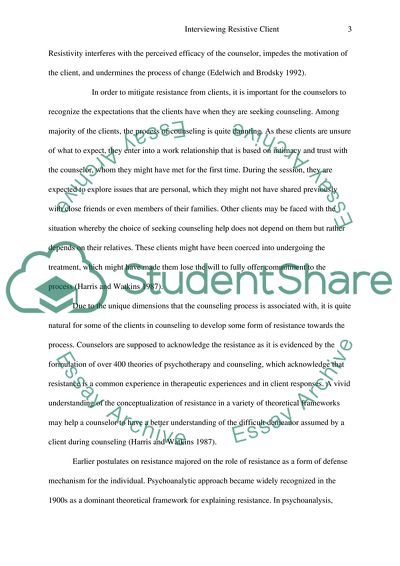Cite this document
(Interviewing Resistive Client Research Paper Example | Topics and Well Written Essays - 1250 words, n.d.)
Interviewing Resistive Client Research Paper Example | Topics and Well Written Essays - 1250 words. https://studentshare.org/social-science/1782823-substance-abuse-client-interviewing-resistive-client
Interviewing Resistive Client Research Paper Example | Topics and Well Written Essays - 1250 words. https://studentshare.org/social-science/1782823-substance-abuse-client-interviewing-resistive-client
(Interviewing Resistive Client Research Paper Example | Topics and Well Written Essays - 1250 Words)
Interviewing Resistive Client Research Paper Example | Topics and Well Written Essays - 1250 Words. https://studentshare.org/social-science/1782823-substance-abuse-client-interviewing-resistive-client.
Interviewing Resistive Client Research Paper Example | Topics and Well Written Essays - 1250 Words. https://studentshare.org/social-science/1782823-substance-abuse-client-interviewing-resistive-client.
“Interviewing Resistive Client Research Paper Example | Topics and Well Written Essays - 1250 Words”. https://studentshare.org/social-science/1782823-substance-abuse-client-interviewing-resistive-client.


